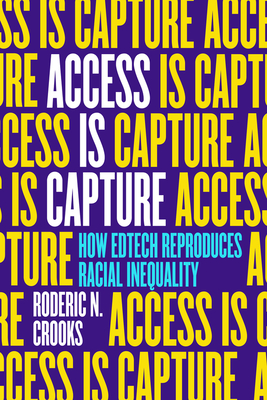
description
schools across the United States have hosted many interventions from commercial digital education technology (edtech) companies who promise their products will rectify the failures of public education. Edtech's benefits are not only trumpeted by industry promoters and evangelists but also vigorously pursued by experts, educators, students, and teachers. Why, then, has edtech yet to make good on its promises? In Access Is Capture, Roderic N. Crooks investigates how edtech functions in Los Angeles public schools that exclusively serve Latinx and Black communities. These so-called urban schools are sites of intense, ongoing technological transformation, where the tantalizing possibilities of access to computing meet the realities of structural inequality. Crooks shows how data-intensive edtech delivers value to privileged individuals and commercial organizations but never to the communities that hope to share in the benefits. He persuasively argues that data-drivenness ultimately enjoins the public to participate in a racial project marked by the extraction of capital from minoritized communities to enrich the tech sector.
member goods
No member items were found under this heading.
Return Policy
All sales are final
Shipping
No special shipping considerations available.
Shipping fees determined at checkout.







